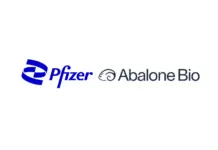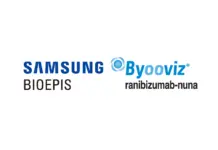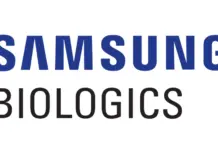Clinical Trials to Evaluate Merck’s KEYTRUDA® (pembrolizumab) in Combination with Other Medicines and Treatments Across Multiple Tumor Types
Merck (NYSE:MRK), known as MSD outside the United States and Canada, and The University of Texas MD, Anderson Cancer Center today announced that they have entered into a strategic clinical research collaboration to evaluate Merck’s anti-PD-1 therapy, KEYTRUDA® (pembrolizumab), in combination with other treatments, such as chemotherapy, radiation therapy and/or novel antitumor medicines.
Under the terms of the agreement, collaborative studies will be conducted in the following tumor types: gastroesophageal adenocarcinoma, pancreatic adenocarcinoma, and hepatocellular carcinoma — over the three year period of the collaboration. The first studies are scheduled to start enrolling later this year.
The agreement aims to define what combination modalities will work best with KEYTRUDA in these types of tumors by exploring promising new alternatives. The studies will be conducted in parallel, in order to determine optimal regimens in the most efficient manner possible. All studies will feature state-of-the-art monitoring protocols and built-in flexibility to take advantage of the very latest information available.
“Through these types of collaborations, we are able to engage in larger, more comprehensive studies that aim to accelerate the pace of discovery,” said Patrick Hwu, M.D., division head, cancer medicine at MD Anderson. “We believe that this new agreement will help to speed delivery of new cancer treatments that our patients expect and deserve.”
“This agreement embodies Merck’s commitment to collaborating with leaders in the field to rapidly advance breakthrough science and further the goal of bringing new treatment approaches to patients,” said Dr. Roger Dansey, senior vice president and therapeutic area head, oncology late-stage development, Merck Research Laboratories. “Agreements like this are an integral part of our strategy to evaluate KEYTRUDA in multiple tumors and combinations.”
MD Anderson is a world-recognized academic research institution that has consistently led the charge in researching breakthrough cancer therapies, and was a key contributor to early investigations exploring the use of KEYTRUDA in the treatment of multiple tumor types. Past research collaborations with Merck and MD Anderson were pivotal in achieving the FDA approval of KEYTRUDA as a treatment for unresectable or metastatic melanoma.
About KEYTRUDA® (pembrolizumab)
KEYTRUDA is a humanized monoclonal antibody that blocks the interaction between PD-1 and its ligands, PD-L1 and PD-L2. By binding to the PD-1 receptor and blocking the interaction with the receptor ligands, KEYTRUDA releases the PD-1 pathway-mediated inhibition of the immune response, including the anti-tumor immune response.
KEYTRUDA is indicated in the United States at a dose of 2 mg/kg administered as an intravenous infusion over 30 minutes every three weeks for the treatment of patients with unresectable or metastatic melanoma and disease progression following ipilimumab and, if BRAF V600 mutation positive, a BRAF inhibitor. This indication is approved under accelerated approval based on tumor response rate and durability of response. An improvement in survival or disease-related symptoms has not yet been established. Continued approval for this indication may be contingent upon verification and description of clinical benefit in the confirmatory trials.
Merck is advancing a broad and fast-growing clinical development program for KEYTRUDA with more than 100 clinical trials – across more than 30 tumor types and enrolling more than 16,000 patients – both as a monotherapy and in combination with other therapies.
Selected Important Safety Information for KEYTRUDA
Pneumonitis occurred in 12 (2.9%) of 411 patients with advanced melanoma receiving KEYTRUDA (the approved indication in the United States), including Grade 2 or 3 cases in 8 (1.9%) and 1 (0.2%) patients, respectively. Monitor patients for signs and symptoms of pneumonitis. Evaluate suspected pneumonitis with radiographic imaging. Administer corticosteroids for Grade 2 or greater pneumonitis.
Withhold KEYTRUDA for Grade 2; permanently discontinue KEYTRUDA for Grade 3 or 4 pneumonitis.
Colitis (including microscopic colitis) occurred in 4 (1%) of 411 patients, including Grade 2 or 3 cases in 1 (0.2%) and 2 (0.5%) patients respectively, receiving KEYTRUDA (pembrolizumab). Monitor patients for signs and symptoms of colitis. Administer corticosteroids for Grade 2 or greater colitis. Withhold KEYTRUDA for Grade 2 or 3; permanently discontinue KEYTRUDA for Grade 4 colitis.
Hepatitis (including autoimmune hepatitis) occurred in 2 (0.5%) of 411 patients, including a Grade 4 case in 1 (0.2%) patient, receiving KEYTRUDA. Monitor patients for changes in liver function.
Administer corticosteroids for Grade 2 or greater hepatitis and, based on severity of liver enzyme elevations, withhold or discontinue KEYTRUDA.
Hypophysitis occurred in 2 (0.5%) of 411 patients, including a Grade 2 case in 1 and a Grade 4 case in 1 (0.2% each) patient, receiving KEYTRUDA. Monitor for signs and symptoms of hypophysitis (including hypopituitarism and adrenal insufficiency). Administer corticosteroids for Grade 2 or greater hypophysitis. Withhold KEYTRUDA for Grade 2; withhold or discontinue for Grade 3; and permanently discontinue KEYTRUDA for Grade 4 hypophysitis.
Hyperthyroidism occurred in 5 (1.2%) of 411 patients, including Grade 2 or 3 cases in 2 (0.5%) and 1 (0.2%) patients respectively, receiving KEYTRUDA. Hypothyroidism occurred in 34 (8.3%) of 411 patients, including a Grade 3 case in 1 (0.2%) patient, receiving KEYTRUDA. Thyroid disorders can occur at any time during treatment. Monitor patients for changes in thyroid function (at the start of treatment, periodically during treatment, and as indicated based on clinical evaluation) and for clinical signs and symptoms of thyroid disorders. Administer corticosteroids for Grade 3 or greater hyperthyroidism.
Withhold KEYTRUDA for Grade 3; permanently discontinue KEYTRUDA for Grade 4 hyperthyroidism. Isolated hypothyroidism may be managed with replacement therapy without treatment interruption and without corticosteroids.
Type 1 diabetes mellitus, including diabetic ketoacidosis, has occurred in patients receiving KEYTRUDA. Monitor patients for hyperglycemia and other signs and symptoms of diabetes. Administer insulin for type 1 diabetes, and withhold KEYTRUDA in cases of severe hyperglycemia until metabolic control is achieved.
Nephritis occurred in 3 (0.7%) patients receiving KEYTRUDA, consisting of one case of Grade 2 autoimmune nephritis (0.2%) and two cases of interstitial nephritis with renal failure (0.5%), one Grade 3 and one Grade 4. Monitor patients for changes in renal function. Administer corticosteroids for Grade 2 or greater nephritis. Withhold KEYTRUDA (pembrolizumab) for Grade 2; permanently discontinue KEYTRUDA for Grade 3 or 4 nephritis.
Other clinically important immune-mediated adverse reactions can occur. The following clinically significant, immune-mediated adverse reactions occurred in patients treated with KEYTRUDA (pembrolizumab): exfoliative dermatitis, uveitis, arthritis, myositis, pancreatitis, hemolytic anemia, partial seizures arising in a patient with inflammatory foci in brain parenchyma, severe dermatitis including bullous pemphigoid, myasthenic syndrome, optic neuritis, and rhabdomyolysis.
For suspected immune-mediated adverse reactions, ensure adequate evaluation to confirm etiology or exclude other causes. Based on the severity of the adverse reaction, withhold KEYTRUDA and administer corticosteroids. Upon improvement of the adverse reaction to Grade 1 or less, initiate corticosteroid taper and continue to taper over at least 1 month. Restart KEYTRUDA if the adverse reaction remains at Grade 1 or less. Permanently discontinue KEYTRUDA for any severe or Grade 3 immune-mediated adverse reaction that recurs and for any life-threatening immune-mediated adverse reaction.
Infusion-related reactions, including severe and life-threatening reactions, have occurred in patients receiving KEYTRUDA. Monitor patients for signs and symptoms of infusion-related reactions including rigors, chills, wheezing, pruritus, flushing, rash, hypotension, hypoxemia, and fever. For severe or life-threatening reactions, stop infusion and permanently discontinue KEYTRUDA.
Based on its mechanism of action, KEYTRUDA may cause fetal harm when administered to a pregnant woman. If used during pregnancy, or if the patient becomes pregnant during treatment, apprise the patient of the potential hazard to a fetus. Advise females of reproductive potential to use highly effective contraception during treatment and for 4 months after the last dose of KEYTRUDA.
For the treatment of advanced melanoma, KEYTRUDA was discontinued for adverse reactions in 9% of 411 patients across all doses studied. Adverse reactions, reported in at least two patients, that led to discontinuations of KEYTRUDA were: pneumonitis, renal failure, and pain. Serious adverse reactions occurred in 36% of patients receiving KEYTRUDA. The most frequent serious adverse drug reactions reported in 2% or more of patients were renal failure, dyspnea, pneumonia, and cellulitis.
The most common adverse reactions (reported in ≥20% of patients) were fatigue (47%), cough (30%), nausea (30%), pruritus (30%), rash (29%), decreased appetite (26%), constipation (21%), arthralgia (20%), and diarrhea (20%).
The recommended dose of KEYTRUDA is 2 mg/kg administered as an intravenous infusion over 30 minutes every three weeks until disease progression or unacceptable toxicity. No formal pharmacokinetic drug interaction studies have been conducted with KEYTRUDA (pembrolizumab). It is not known whether KEYTRUDA is excreted in human milk. Because many drugs are excreted in human milk, instruct women to discontinue nursing during treatment with KEYTRUDA. Safety and effectiveness of KEYTRUDA have not been established in pediatric patients.




























